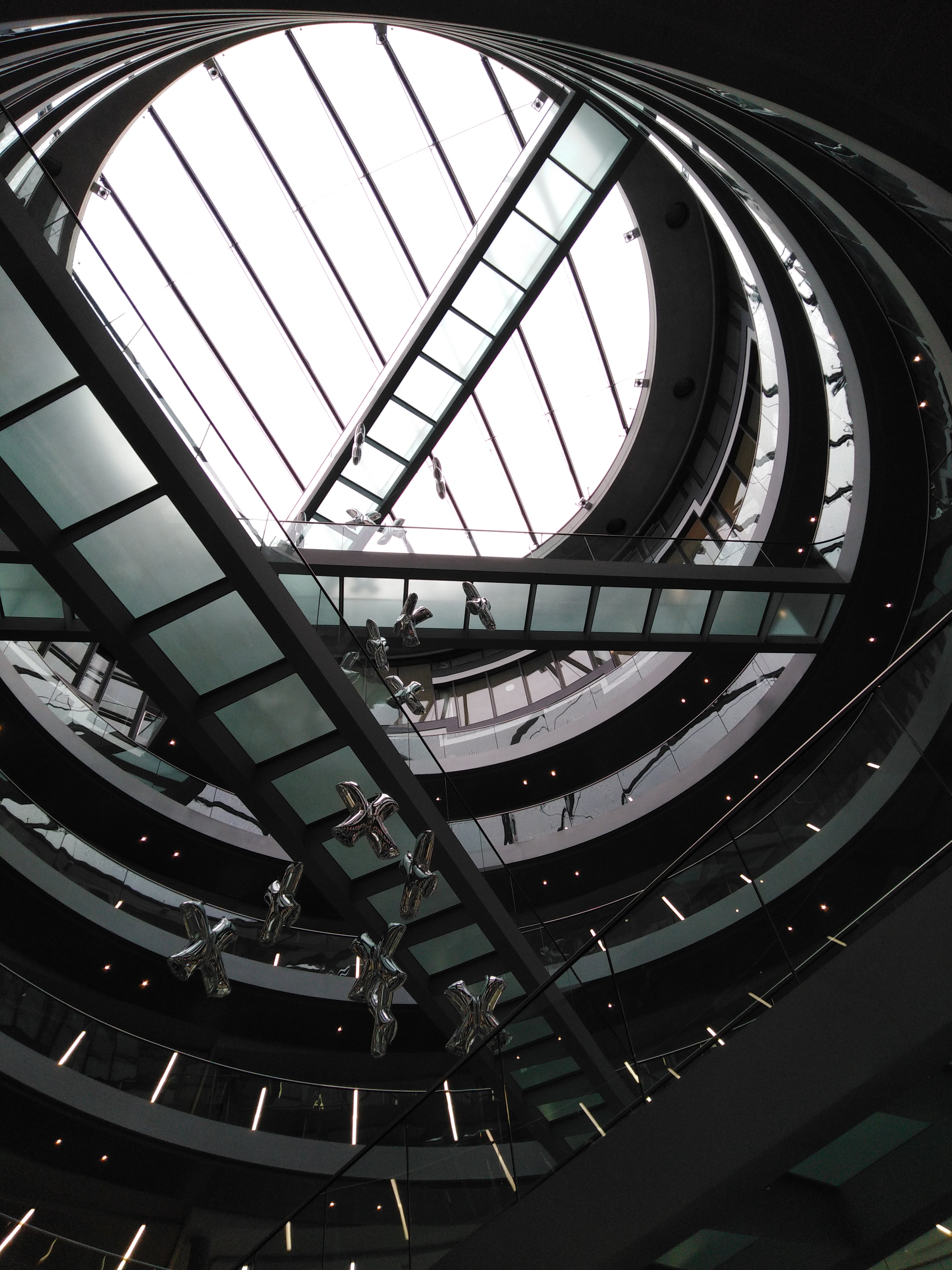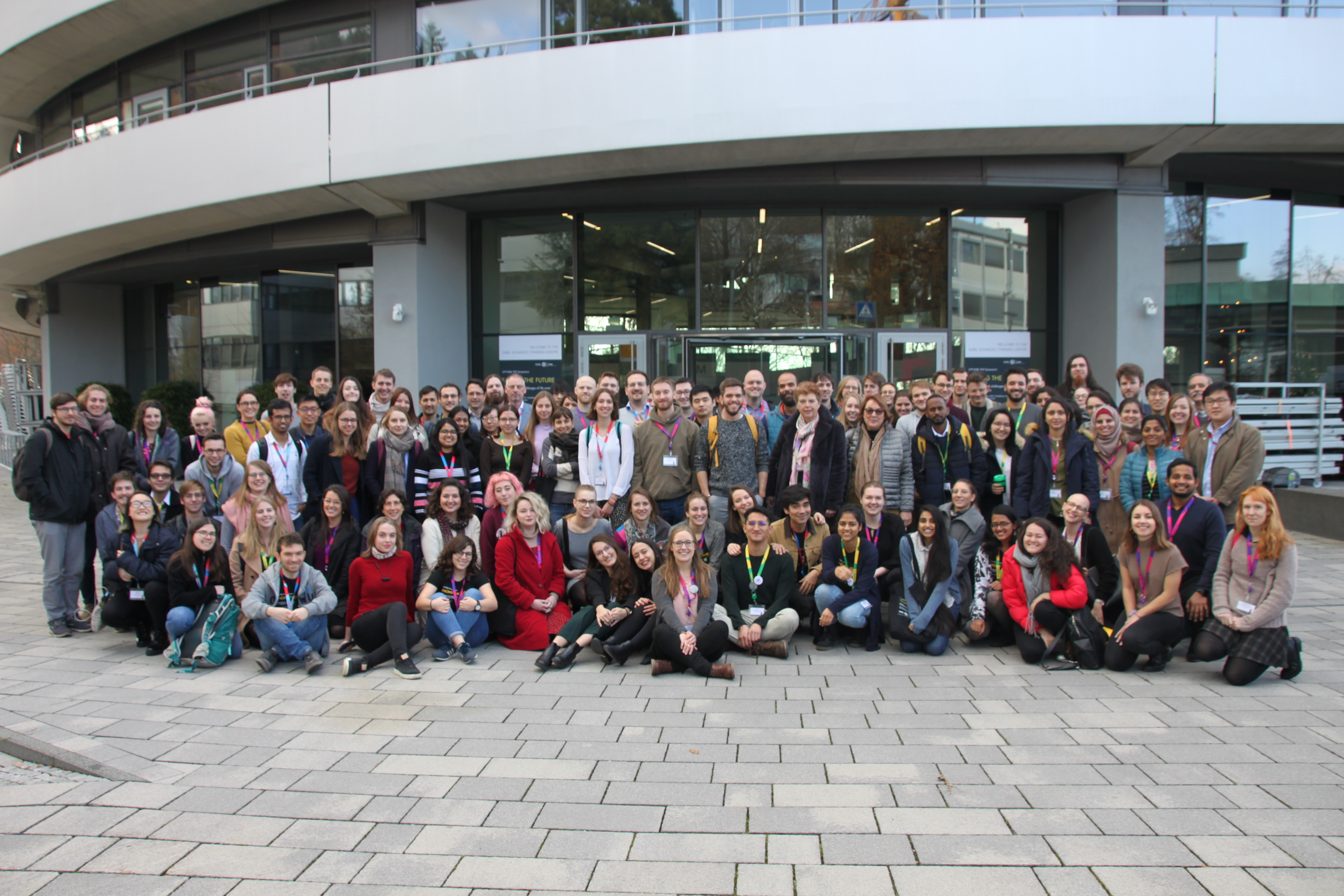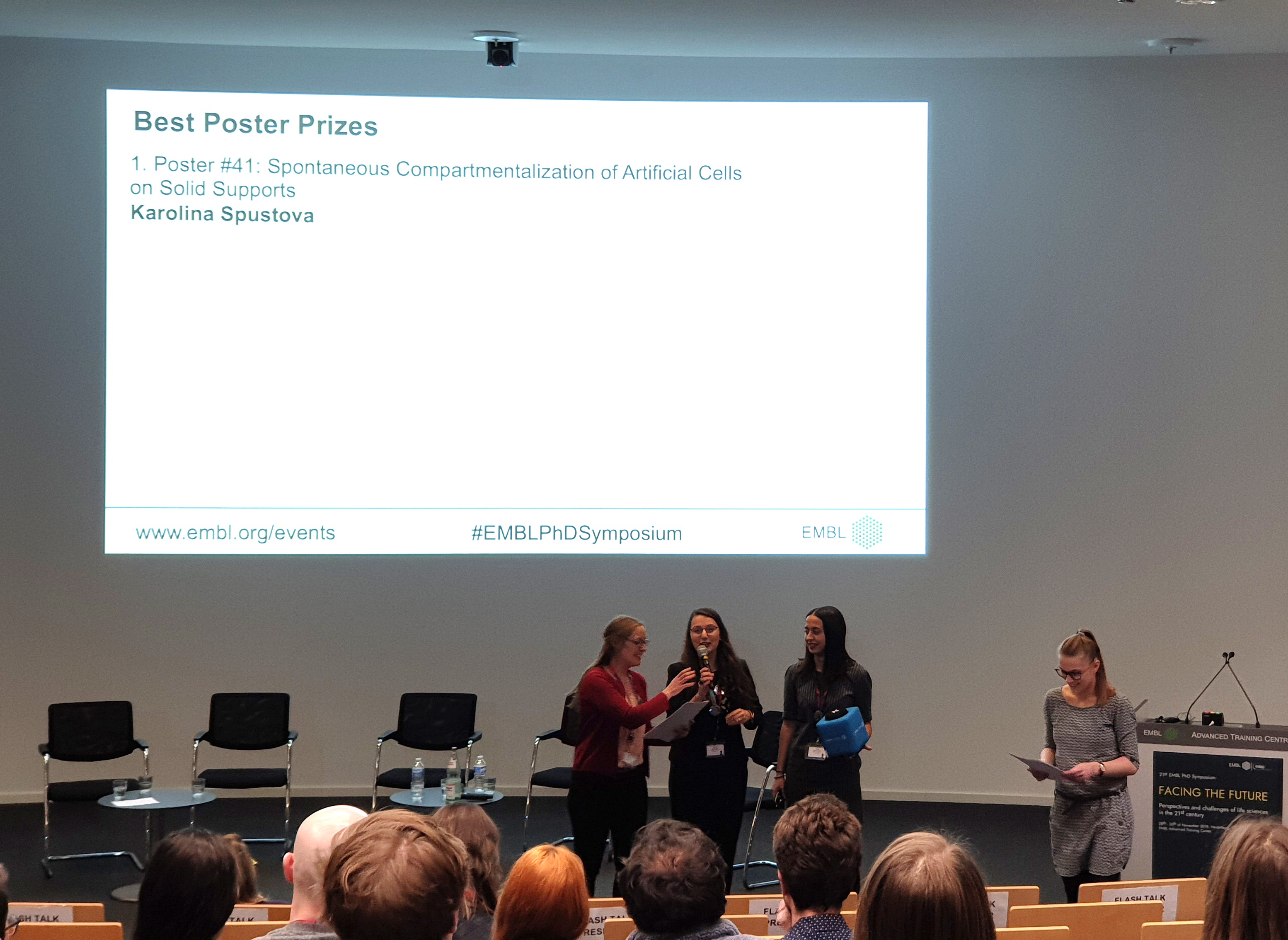PhD students from the Nordic EMBL Partnership node NCMM, attend EMBL PhD symposium in Heidelberg
Nine PhD students from various NCMM groups attended this year's EMBL PhD Symposium in Heidelberg, Germany. Two students presented flash talks as part of the main program, and Karolina Spustová from the Gözen group was awarded a prize for the best poster.





This year's event took place from November 28th-30th, and represented the 21st edition of the annual EMBL PhD symposium.
Inspiring the next generation of researchers
The highly respected scientific meeting aims to inspire and connect the next generation of researchers, with opportunities to learn from high profile scientists across a range of research fields.
This year's symposium was titled 'Facing the Future: Challenges and Perspectives of Life Sciences in the 21st Century', with a strong focus on tackling the global problems faced by humanity today. More information, including a detailed program, is available on the official symposium website.
Nine PhD students from NCMM attended the symposium this year, including those from the Gözen, Haapaniemi, Mathelier, Luecke, Kuijjer, Esguerra, and Lopez-Aviles groups. The students enjoyed presentations by a range of established scientists from renowned research institutes around the world, as well as speakers from industry and other scientific disciplines.
Broad range of topics
Returning to NCMM this week, the students reported back on an engaging program of talks. Students were particularly impressed by the broad range of topics covered by speakers, from science policy to big data handling and science communication. Particular highlights included inspiring talks in the field of science philosophy by Charles Pence (Université Catholique de Louvain, Belgium), and Francoise Baylis (Dalhousie University, Canada).
Dr Pence's talk encouraged students to consider the challenge of 'breadth' in today's research environments, comparing Charles Darwin's style of work to more modern approaches. Dr Baylis discussed the importance and impact of the language used to communicate scientific research, with a focus on CRISPR technology and human genome editing. NCMM students commented that both talks provided a completely new insight into their daily research practices, and made them consider important issues outside of their day-to-day lab work.
Using research to tackle environmental challenges
The students also highlighted talks by Tempest Van Schaik (Microsoft, London), Dr Tobias Elb (Max Planck Institute, Marburg, Germany) and Professor Mark Post (Maastricht University, Netherlands).
Tempest Van Schaik is an inventor and engineer at Microsoft, and gave an inspiring (and artistic) talk about her career journey from South Africa to the US and London, working with farmers in Kenya along the way. Tempest encouraged students to gain different skills outside of those developed through their PhD training, thereby improving future job prospects in fast growing professional fields.
Dr Tobias Elb discussed his work attempting to engineer novel CO2-processing enzymes using synthetic biology techniques - an approach that may contribute to tackling the planet's pressing climate issues. Professor Mark Post was the final keynote speaker in the symposium program. He gave a highly entertaining talk titled 'Using Technology to Make Hamburgers'. Here, Professor Post discussed the environmental issues associated with our current meat consumption rates, and his research group's efforts to tackle this problem - including synthetic meat production that is "three times more productive than cows".
Success for NCMM students
In addition to talks by more senior researchers, the program also included flash talks by a selection of PhD students, including NCMM's Karolina Spustová (Gözen Group) and Ganna Reint (Haapaniemi group). Students were also provided the opportunity to interact and network at social events, including a tour of Heidelburg, a pub quiz and two separate poster sessions.
We are pleased to report that the judging committee awarded one of two best poster prizes to NCMM student Karolina Spustová for her poster tilted 'Spontaneous Compartmentalization of Artificial Cells on Solid Supports'.
We would like to thank EMBL for organizing an exciting program and a highly successful event. We look forward to sending more students from the Nordic EMBL Partnership nodes to next year's symposium.